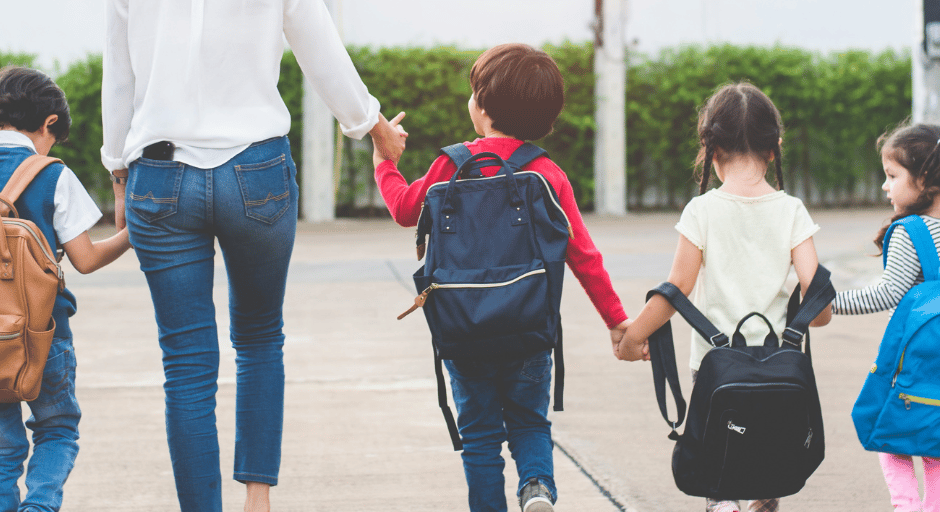Children, Dinosaurs and Cultural Dilemmas: Early Parenting in Migration
ENGLISH
5 min read


So we've reached the stage when our children transition from "totally dependent" to "still dependent, but with very specific opinions about sock colors"... We used to guess whether they were crying from hunger or tiredness - now we conduct negotiations at the potty, fight battles over plastic dinosaurs and hear "But whyyyyy?" on average every five minutes.
And as parents from Eastern Europe in Great Britain, we have a version with additional obstacles: our "put on a hat!" clashes with the local relaxed approach. Sometimes it's funny, sometimes strange, but it's definitely not boring!
So brew some tea, reach for the biscuits and dive into this adventure with us, before you hear: "No offence, mum, but..."
The Himalayas of early childhood
Navigating the British preschool world without knowing English is a bit like high-altitude climbing without proper equipment... Conversations with teachers sometimes leave us breathless, and notes about fancy dress day cause more stress than organising the costume itself... Research on migrant families and early education confirms: language support and culturally sensitive communication are key. And suddenly you feel less red-faced when you ask five times what "mufti day" means.
Language isn't everything - mentality differences are a really difficult approach! Because when British educators say "let the child explore," your internal "sit nicely and don't touch" doesn't know what to do with its hands. In Eastern Europe we had more patterns, more "please, repeat after me." And here - freedom. Some of us feel delighted, others slightly lost. And that's okay too - research on migrant parenting shows that this cultural tug-of-war is absolutely normal.
We add to this, the loneliness of the journey, meaning the lack of "our people." In our home country we leave behind grandmothers, aunts and neighbour Renia, who always knew where to buy the best nappies. Building new relationships, finding a babysitter, gaining trust in other parents - all this takes time. In this chaos it's worth knowing that in Sandwell there are Family Hubs - places created with families with children aged 0-19 in mind (and in case of SEN - up to 25). They offer, among others, free "Play Talk Read" sessions, which support language and development of the youngest. Also worth checking on their website are - the "Toddler Parenting" and "Young Children" tabs.
If you miss conversation in Polish/ Romanian (or simply someone who also doesn't understand "fancy dress day") - contact the European’s Welfare Association or R.U.D.A. They'll find you a group, event or another parent who's on the same ride...
And finally - a classic of the genre: how to combine work, children, home, dishwasher and not forget your own name? That's the real peak! Without family next door, with UK nanny rates, juggling everything at once can squeeze out more sweat than hiking. But it's doable. With herbal tea in one hand, calendar in the other and a little help from those who've already walked this path.
The art of letting go (a bit): how to combine care with toddler independence?
How to let children spread their wings without giving up the caring instinct? Research from Harvard Center on the Developing Child (2022) and UNICEF report (2023) emphasise: toddlers grow best when they feel safe and loved, but also have the opportunity for choice and independent problem solving.
The key is secure attachment - routine, predictability and lots of cuddles, meaning being "on call," but turning off the pushy GPS that repeatedly says "turn left"... Even small children gain confidence by choosing between two outfits or snacks.
Play is their work - let them freely experience instead of constantly steering. When they grow up, let's encourage simple tasks like getting dressed or tidying up. A little mess and minor falls? That's a natural part of learning. Let's trust them, with common sense of course!
Ready for school? How to prepare your little one for the big adventure
First day at nursery or preschool? For children - a new world. Though exciting, it's often stressful, also for parents. How to prepare so it doesn't end in drama like "clinging to mummy's leg for dear life"?
Let's start with the narrative: present the preschool to your little one as a place of play, friends and cool things to discover. Books about starting school and earlier visits to the preschool help - the less mysterious, the better.
Routines are the secret of survival. Preschools are ruled by structure, so it's worth introducing something similar at home: fixed wake-up times, meals and quiet time. Plus contact with other children - through play groups, meetings or local events - to practice sharing, patience and... losing without tears.
In Sandwell it's worth checking out Sandwell Council's Childcare and Early Years Services, where you'll find info about funded places for 2-, 3- and 4-year-olds (15/30 free hours). And Family Information Service (FIS) offers free, confidential advice for parents who don't know where to start. Some Sandwell Primary Schools also have great nursery units where learning through play is everyday life.
If Polish/ Romanian rules at home - that's good! Research shows that bilingualism brilliantly develops our little ones. Support the mother tongue, but weave in English through cartoons, books, songs and conversations. In time, school will do this.
Leaving your child briefly with grandma, uncle or friend before preschool starts - it's not just a coffee break, but also great training before first separations. It'll get easier with time, you'll see!
Finally: talk to teachers. The more they know about your child (their preferences and fears), the better they'll be able to support them. Good cooperation with them is the foundation of a successful start.
Oops, we did it again - typical parenting mishaps (with a wink)
Parenting is constant learning from the very beginning - with small victories, lots of mistakes, endless washing and a gallery of "artworks" in preschool expressionism style. Here are some classic traps that happen to all of us - you can try to avoid them altogether or at least navigate them with grace….:
Daily plan worthy of an operations director
In concern for the "best start" we fill children's calendars to the brim - music, yoga, English for two-year-olds. But free play is gold for development! Freedom + stick = learning through exploration (and dirty trousers).
Comparisons, enemy number one
Your little one still doesn't recite the alphabet in three languages? So what. Every child develops differently, and focusing on "milestones" can only undermine confidence (both the child's and yours). Celebrate their pace and talents - even if it's only outstanding abilities in throwing blocks.
Boundaries? What's that?
Children need clear, consistent rules. When something is allowed today but not tomorrow - we have chaos. Consistency in discipline = calmer home and more self-regulation (meaning fewer dramas about the blue cup).
Superhero without battery charging
Especially migrant parents often lack family support systems. In such conditions, it's easy to forget about yourself. But even 10 minutes of silence, conversation with another parent (humanly, not about runny noses) or a solo walk can give you a big dose of distance and regeneration.
Stress? They know
Small children have a sixth sense in picking up our emotions. If we're stressed - they feel it. Taking care of our own wellbeing, we're also doing a great favour to our children. Win-win.
Beautiful chaos
The early years of raising children are a whirlwind of joy, exhaustion and constant learning. As parents from Eastern Europe in the West Midlands, we bring to this journey our own unique perspective and experiences. Let's embrace this beautiful chaos, celebrate small victories and remember that we're not alone. And our little ones grow and learn every day, just like us. Like me and you.
So hang in there, because you're doing great.
Sources:
Hutchinson, J., Reader, M., & Akhal, A. (2020). Education in England: Annual Report 2020. Education Policy Institute.
Devine, D. (2019). Multilingual families in the United Kingdom: Policy and practice. Palgrave Macmillan.
Sime, D., & Fox, R. (2015). Migrant children, social capital and access to services post-migration: Transitions, negotiations and complex agencies. Children's Geographies, 13(5), 551-565.
Coram Family and Childcare (2024). Childcare Survey 2024.
Harvard Center on the Developing Child (2023). Key Concepts: Serve and Return.
Whitebread, D., et al. (2017). The importance of play: A report on the value of children's play with a series of policy recommendations. Toy Industries of Europe.
Kenner, C., Ruby, M., Jessel, J., Gregory, E., & Arju, T. (2022). Bilingualism and Early Years: Supporting Multilingual Families. National Literacy Trust.
Anna Freud Centre (2023).Early Years in Mind.
Get the latest from our newsletter!
© 2025. All rights reserved
Website Terms | Privacy Policy | Accessibility | Do Not Sell My Information
Funded by




